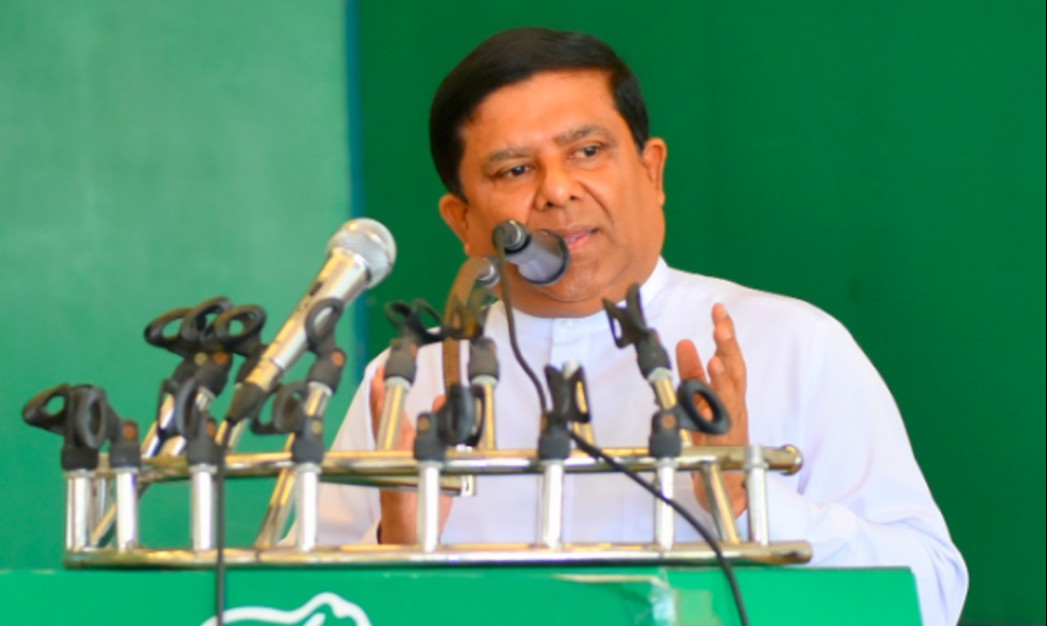The term ‘Private’ cannot be applied to any President – Vajira Abeywardena
25-Aug-2025.

According to the Constitution of Sri Lanka, the term “private” cannot be applied to any sitting President. At the same time, except for the funds allocated to the Office of the President, no public funds have ever been used by former President Ranil Wickremesinghe, said United National Party (UNP) Chairman Vajira Abeywardena.
He further pointed out that a power outage inside the court is not a normal occurrence, questioning whether the blackout during the hearings was accidental or deliberately caused.
He made these remarks at a special press conference held on August 23 at Ranil Wickremesinghe’s political office in Flower Road, Colombo.
He added: “During the court proceedings, there was a blackout. We do not know whether it occurred naturally or was engineered. Traditionally, if charges against an accused are proven and the death penalty is to be pronounced, the courtroom lights are turned off, candles are lit, and the pen used to write the judgment is broken.
Therefore, the blackout during these hearings caused much commotion. Electricity was restored only after about one or two hours. Journalists must have clarity regarding such incidents. The entire legal fraternity is watching these matters closely.
In this regard, the statement made on Twitter by former President of the Bar Association of Sri Lanka (BASL), President’s Counsel Saliya Peiris, is of great importance.
As a former Minister of Public Administration, I emphasize that the former President’s visit fell under official administration, as it was carried out using funds allocated for the President in the national budget.
The first reason is that no public funds were used beyond the allocation made to the Presidency. Secondly, when examining the Auditor General’s report issued by the Attorney General regarding the use of these funds, there is no mention of any irregularities.
Therefore, based on both legal and constitutional grounds, no sitting President can ever be described as ‘private’ during their tenure—whether they are within the country or abroad.”







